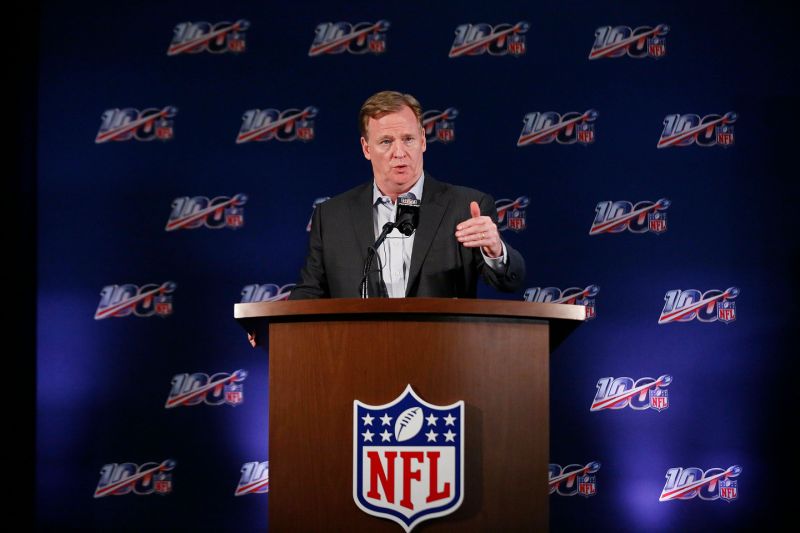The NFL has asked teams to eliminate some high-impact drills — including the iconic Oklahoma drill — from training camp practices as part of the league’s ongoing effort to reduce concussions.
The league acknowledged the request Tuesday during its spring meeting in Key Biscayne, Florida. The recommendation came in response to data that showed a high rate of concussions during the early part of training camp in recent years. The league convened an April 17 meeting among current and former NFL players, coaches and executives to discuss ways that would address the issue.
Banning certain drills was among the group’s recommendations.
The Oklahoma drill, among others, has been used far less frequently in recent years, but its history is rooted in reacquainting players with full contact after the offseason.
It pits a defender against a blocker who is trying to make room for a ball carrier. Teammates and coaches usually surround the drill area to create a battle-type atmosphere.
In 2015, New England Patriots coach Bill Belichick said the drill quickly answers these questions: “Who is a man? Who’s tough? Who’s going to hit somebody?”
Year-over-year reported concussions dropped 25 percent in 2018 following a “call to action” by chief medical officer Allen Sills.
The league joined the NFL Players Association to produce a three-part concussion-reduction strategy: prohibiting underperforming helmet models, instituting a series of rule changes rooted in biomechanical research, and intervening in early training camp practices.
That initial camp intervention failed to change the numbers, leading to the April 17 meeting.
“We saw a certain area at the beginning of training camp where we felt could make greater improvement,” commissioner Roger Goodell said Wednesday, “and I think removing some of these drills across all 32 teams is the right way to do that. We also believe by prohibiting some of these drills, that will happen at the college and high school and youth football levels, which we believe should happen.”
Competition committee chairman Rich McKay said Wednesday, “I think some of the coaches were a little defensive at the start, and probably the biggest advocates at the end.”
The Associated Press contributed to this report.
